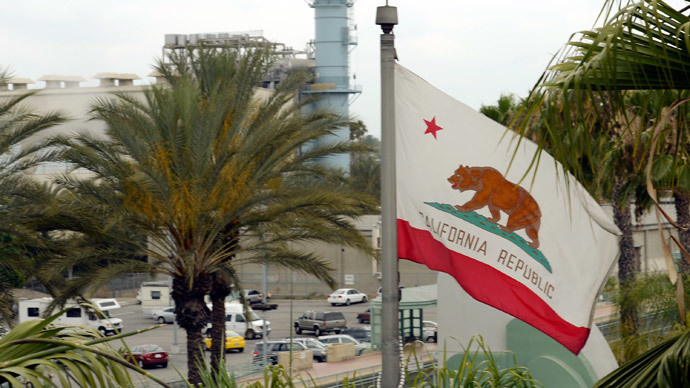California counties vote to break away and form new state

Frustrated with their representation in government, residents in two of California’s northern counties are heading to the polls on Tuesday to decide whether they should consider seceding from the state.
According to Reuters, campaigns in both Del Norte and Tehama counties are underway to convince residents that permanently separating from California is in their best interests. By supporting the measures at the ballot box, supporters would be pushing local officials to continue efforts to combine parts of northern California with parts of southern Oregon into the nation’s 51st state.
The new state would be called Jefferson, as a tribute to Founding Father Thomas Jefferson, who once believed that parts of the Western United States could form a freestanding republic.
If the measures are approved, local lawmakers would join other counties and continue to try and generate momentum for secession. Already, four counties – Glenn, Modoc, Siskiyou, and Yuba – have voted to join the effort, while others are waiting for the results in Del Norte and Tehama before taking action.
As noted by the Associated Press, as many as 16 counties in northern California could potentially join the movement, though official secession would require approval by the state legislature as well as the US Congress. If they all decide to seek separation, the counties would make up about a quarter of California’s territory.
Despite their size, however, the disgruntled counties only contain a small percentage of California’s inhabitants – Del Norte, for example, is home to just 28,000 of the state’s 38 million-strong population. Fed up with the way California allocates representatives – lawmakers are delegated based on population – secession supporter and organizer Aaron Funk sees the ballot as a way forward.
"We have 11 counties up here that share one state senator," he told the AP, noting that the greater Los Angeles area and San Francisco Bay have far more. "Essentially, we have no representation whatsoever."
The measure faces opposition, however, from groups who worry about how Jefferson would be able to support itself financially, especially since many of its residents are poor and unemployed. California already supplies most of the funding for infrastructure and education, and most of the large swathes of land are owned by the federal government – something that would remain the same even if Jefferson were to become a state.
“We will continue to face the same challenges,” Del Norte County officials wrote in a formal argument against the idea, as quoted by Reuters. “Except we will no longer be subsidized by the State.”
Meanwhile, Ethan Rarick of the University of California, Berkeley, noted that problems with representation wouldn’t stop with the establishment of Jefferson, either.
“There is no incentive,” he said to Reuters. “If you’re one of 100 senators, you don’t want to become one of 102.”
Although supporters of secession haven’t presented detailed plans regarding Jefferson’s ability to sustain itself, provide health care, education, and other social services, Funk and others state they would eliminate regulations and other state agencies in an attempt to attract businesses.
"We have the water, forests, timber, we have the minerals. We have unspoiled agricultural land," added Funk to the AP. "We would be the wealthy state if we were allowed to go back and use our natural resources ourselves."
Still, the explanations don’t add up for opposing groups in Del Norte, who fear that approving a measure that calls for secession would simply result in lawmakers using their time debating the creation of Jefferson instead of fixing real problems.
"It's a lot of broad promises about things being better and representation being better," Kevin Hendrick, who is leading the opposition in Del Norte, said to the AP. "But the more they talk, the less clear it becomes about how that's actually going to happen."














